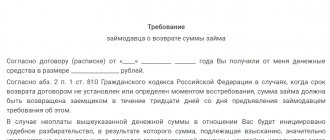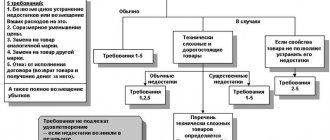In accordance with Art. 153 of the Housing Code of the Russian Federation, the obligation to pay utility bills rests with the owner of the residential premises. He is obliged to make regular payments in accordance with the agreement with the management company, HOA or directly with the service provider.
Payment for heating is calculated regardless of whether anyone lives in the apartment or not. Other utilities (electricity, gas, water supply, sewerage) are paid in accordance with meter readings, if installed, or according to the tariff.
If the house cannot be equipped with meters, then payment is calculated according to the standards. If the owner does not live in the apartment, he can provide a certificate about this to receive a recalculation.
Thus, utility bills can be charged even if no one lives in the apartment. Therefore, the owner is obliged to constantly make payments.
If funds are not paid on time, a debt is formed.
Important! It is advisable to prevent the formation of debt. If the amount of rent is prohibitively high for the family budget, it is necessary to take care in advance of obtaining assistance from the state to pay for them.
Only owners who do not have payment debts at the time of appeal are entitled to assistance.
If the debt has already been accrued, then it is necessary to develop a repayment procedure.
In 2021, there are several ways to pay off utility debt.
No.
| Repayment methods | |
| 1 | Debt restructuring |
| 2 | Government subsidy |
| 3 | Benefits for certain categories of citizens |
Government subsidy
Subsidies are possible for all categories of citizens. However, a prerequisite is that the monthly payment for utilities is more than 22% of the total family budget.
In practice, this option as a subsidy is suitable for single pensioners and low-income families.
A special feature of the subsidy is the need to pay utility bills in full. And the established amount is returned to the recipient’s account at the end of the month.
The amount of the subsidy is calculated for each family individually. Depending on the total family income, on the region of circulation. The subsidy amount can be from 5 to 30% of the total payment amount.
A prerequisite at the time of applying for a subsidy is the absence of utility debt. Therefore, if there is any amount of debt, the authorized body will refuse to assign a support measure.
The body authorized to assign subsidies for housing and communal services is the district social protection department. To apply, you must have permanent registration in the region of application. In addition, only the owner of the premises can receive assistance.
Is it possible to write off utility debts?
There is another way that frees the defaulter from utility debts. This is the statute of limitations. In accordance with the law, it is three years, but amendments to the housing and communal services of the Russian Federation clarify that the Criminal Code has the right to demand money from the debtor for five years. If the Criminal Code requires compensation for the amount over a longer period of time, the debtor has the right to sue and is guaranteed to win the case.
If the owner of the property died, then this is a reason to withdraw established payments from him. But when the documents are reissued to the new owner of the property, all utility debts will automatically transfer to him. The only way for a new owner to waive the obligation to pay utility bills is to relinquish the property.
Privileges
Benefits for utility services in the Russian Federation are provided for certain categories of citizens. The exact list is established by regional regulations.
Important! Contact your district social protection department and check the list of beneficiaries. You may be eligible for a lower monthly payment.
A special feature of benefits is the need to register them. They don't act unconditionally.
The beneficiary is required to come to the social protection department and receive a certificate of eligibility for benefits.
In most regions, the right to benefits is granted to the following categories of citizens:
- WWII veterans and combatants;
- labor veterans;
- large families;
- guardian families.
The certificate is issued within 15 days from the date of application. The document is submitted to the management company or HOA.
Important! Benefits begin to apply from the moment information is provided to the authorized body. The beneficiary does not receive the right to reduce previously formed debt.
Extenuating circumstances
Judicial practice shows that when considering cases of debts for housing and communal services, some mitigating circumstances are taken into account in the form of evidence of significant reasons for the occurrence of debt.
Of course, these will have to be documented, so the owner of the apartment must immediately address this issue as soon as he receives a subpoena. Good reasons for incurring debts may include:
- Long-term illness with or without hospitalization, during which wages were not accrued;
- Dismissal of the payer from his place of work through no fault of his (liquidation of the enterprise, layoff of employees, etc.);
- Long delay in payment of wages;
- Difficulties with financial situation due to other circumstances.
In addition, if the reasons listed above are present, if in addition to this the amount of rent is more than twenty-two percent of the monthly income of the defaulter’s family, in order to avoid bringing the situation to court, it is advisable to issue a subsidy. This will solve the difficult financial situation and reduce the rent by six months.
The date of the court hearing is set by the court, as stated in the summons. It should be borne in mind that the prosecutor will prepare papers that will indicate the guilt of the defendant.
Installment of debt
If the debt has already been formed, then it is possible to contact a management company to restructure it. This is the name for processing debt in installments under an agreement between the management company and the debtor.
To do this, the debtor must submit an application for installment payment for utility bills. The document is drawn up in writing.
From the moment the agreement is signed, the citizen is obliged not only to make monthly current payments, but also to additionally pay part of the accumulated debt. Thus, the amount of debt decreases monthly.
From the moment the agreement is concluded, penalties and fines cannot be accrued on the amount of the debt. The amount is fixed.
An installment plan can be arranged not only pre-trial, but also after a court decision to forcibly collect the debt.
In this case, interest is also not charged. The amount is fixed. However, you will additionally have to pay the state fee, which was paid by the plaintiff, and the fee for initiating enforcement proceedings.
Therefore, it is advisable to conclude an agreement before the authorized body goes to court.
What to do if you have accumulated utility debts?
First of all, do not panic and do not reject the manager’s call from the housing office.
Even when the amount of debt exceeds 60 thousand rubles, calculate all finances, determine how much you can pay now and go to the management company. Talk to a company representative and explain your situation. A housing and communal services employee will go to the meeting and tell you how to proceed. If you start paying off your debts gradually, no one will sue you. Do not argue or conflict, as this will not lead to anything good.
How not to pay legally?
The law establishes a number of utility services that must be paid. These are electricity, gas, water supply, sewerage and heating. Failure to pay will result in penalties and interest.
Let's consider whether it is possible not to pay a penalty. The accrual of penalties can only be challenged in court. The applicant must prove that the amounts were calculated incorrectly.
If the court takes into account the applicant’s evidence, the amount will be reduced or written off completely.
At the same time, a number of payments are established that cannot be increased due to penalties. In case of non-payment, the service provider simply stops providing the service until payment is made. Such services include an elevator, antenna, radio, intercom, Internet, home telephone.
Let's look at why you don't have to pay for some housing and communal services. Not all owners need certain services. If you do not need cable television or the Internet, then you can simply stop making payments by first terminating the supply agreement. This will reduce charges and save part of the family budget.
The expert told how they will extract debts for housing and communal services from Russians
— According to a Rosstat study, the average Russian family pays 4.8 thousand rubles for housing and communal services, which is about 10% more than a year earlier. It turns out that the increase in prices for utilities exceeds official inflation by 2.5–3 times. What is the reason for this imbalance?
— Well, the results of the Rosstat study are very similar to the truth. Various industry experts have already cited similar figures. Indeed, tariff growth exceeds the inflation rate.
The only way to find out how legitimate housing and communal services tariffs are is to conduct an independent audit of them. I have a suspicion that tariffs do not pass such a check - they are simply taken out of thin air, and then this incomprehensible figure is adjusted for inflation. And this principle is used year after year.
In fact, you first need to understand the basis by which the tariff itself is calculated. For example, how much is spent on some updates, digitalization or some other things - all this will be included in the tariff, and then it will be justified.
— Many consumers, judging by the requests from MK readers, still have no idea on what principle housing and communal services tariffs are set in Russia. So where do they come from anyway?
- Let's figure it out. When we receive a payment slip, housing and communal services are listed there. We can check housing services that are designated by the letter “F”. The amount is written out by the management company, and people see what expenses it had: checking elevators, smoke extractors, maintenance of entrances, routine repairs... If we talk specifically about the letter “K” - utilities, then it is impossible to carry out an inspection. This is a big secret that ordinary residents are not privy to. The tariffs have never been audited, and what they consist of is unknown. When we try to organize their independent audit, we are faced with enormous opposition from both legislative and executive bodies.
- How to deal with this?
- No way. We have contacted various local authorities many times: “Let’s audit the tariffs.” We have never received a positive response to the proposal anywhere. Management companies also say that they have nothing to do with this: they, they say, have tariffs that are approved by the legislative authorities (each region has its own). How they are installed is, again, a big mystery that I really want to unravel. But without an audit this is impossible.
— This year, many Russians expected the authorities to abandon the traditional July indexation of utility tariffs and “freeze” them due to falling incomes. However, this never happened: tariffs were raised by an average of 4% across Russia. How justified was this decision?
— I would very much like tariffs not to increase from July 1st. This year, the pandemic adjusted everything for us, and the next increase for many residents of the country who lost their income became a real nightmare. Meanwhile, experience shows: when authorities reduce the required payments, including for housing and communal services, residents pay more willingly. When payments for major repairs for 3 months were reduced, residents paid more out of gratitude. They see that they are taken care of and reciprocate.
“At the same time, against the backdrop of the pandemic, payment collection is falling. There is evidence that a third of Russians stopped paying for housing and communal services during the pandemic. It is clear that income has fallen, but there is another reason: a moratorium has been imposed on fines for non-payment until the end of this year. What will happen to the debt when the moratorium is lifted? How much debt can tenants incur?
— The moratorium was a very correct decision. There are already about 4 million unemployed in Russia, and by the end of the year, according to the most optimistic forecasts, it is planned that their number will grow to 5 million, and according to realistic forecasts, to 7 million. Now people are losing their jobs even more often than during the period of self-isolation, and finding a new one is very difficult. Therefore, the population is accumulating debts for housing and communal services: many conscientious payers, who previously regularly paid for consumed resources, understand that now they cannot afford it.
Unfortunately, a mechanism has not yet been developed for how the debt problem will be solved after January 1, 2021. Currently there are no clear regulations from the Ministry of Construction. The authorities must explain how penalties, fines, and the shutdown of resources for non-payment will be returned. In these conditions, we can only advise one thing: those residents who have already accumulated large debts should not be shy, rather run for subsidies for housing and communal services and apply for an installment plan from the management company. This was not stated in the government resolution on the moratorium on disconnections, but the Ministry of Construction emphasized several times that those who cannot pay need to negotiate an installment plan, otherwise the management company will be able to take its own measures.
— On this occasion, a question from a reader: “During the pandemic, debt has accumulated. Now I’m at the dacha, and there’s no way to deal with this yet. When should you pay off your debt to avoid problems? I'm interested in step-by-step instructions."
— If you are currently in your dacha, then you need to contact your management company as soon as possible, because it is probably already listing your apartment on the “black list” of debtors. Unfortunately, management companies still have every right to do this, but they cannot turn off resources. I am very afraid that management companies, when they are given carte blanche and allowed to cut off debtors from resources, will begin mass shutdowns of gas and heating... In the cold season (and the government moratorium expires on January 1), this will simply become a mockery. But they will try to get out of debt by any means necessary.
Meanwhile, in some regions, huge amounts of debt have accumulated: at the very least, the drop in payments is 30%, and in some places it reaches 70-80% - this is a catastrophic situation. Now we cannot do without government help. First of all, resource providers need budget support, namely targeted subsidies. Everything must be decided on a case by case basis.
As for citizens, the more requests for subsidies, the better. There is no need to sit and wait for your personal income to increase on its own, and you will again be able to pay for utilities. The government must understand that it is very difficult to help everyone individually: there is a chance of drowning in numerous requests. It is easier to organize a massive distribution of subsidies - for example, the state temporarily takes on 30% or 50% of the bill for housing and communal services. If people are given a subsidy, they will pay more willingly - this works on a psychological level.
“Nowadays, not everyone receives such support from the state. I quote the reader’s letter again: “During the pandemic, debts have accumulated, and there is no way to pay the bills yet. There is work, but there is not enough money to pay. Now I am included in this list of “shame and disgrace to debtors,” I feel like a parasite, like before in the USSR.” Is it even legal to publicly pillory defaulters?
— It’s unpleasant to receive such a paper, and even more so to see your apartment and name on the entrance door, but in order not to be included in the list of debtors, I recommend agreeing with the management company on an installment plan, and not hiding from it. Management companies cannot, while the moratorium is in effect, cut off utilities to debtors, but no one forbids them from calling them publicly and saying what debts people have. True, in some regions resources are still turned off. This is absolutely illegal, and in such cases you must contact the prosecutor's office and the housing inspection.
— The heating season is coming. Voices are already being heard that management companies may not have enough money for all the measures to prepare houses for the cold, since there are more defaulters. Will it be possible to prepare all the houses for the heating season on time?
— In Russia there have always been difficulties with preparing houses for winter. In such cases, the management companies wrote letters of guarantee, and the local administration took them on bail. Some representatives of houses and municipal deputies signed in advance a passport of the readiness of a particular house for the cold. I have always been against this practice: it’s signed, off your shoulders, and no one else does anything.
Now the situation is really difficult, and the preparation of buildings for winter is delayed. Here, again, we cannot do without the help of the state. Management companies are having a hard time: if payments have fallen by an average of 50%, management companies simply cannot pay their subcontractors.
— How will this affect consumers? Can residents be left without heat during the cold season?
“We can only hope for the best—that there will be no emergency situations.” Now monitoring of accidents in the housing and communal services sector has become better, but preparing houses for winter should not depend on hope for chance. Where for some reason they do not have time to prepare the house, state support is needed. Federal subsidies must be provided. There is no other way out yet. Meanwhile, residents themselves must be active and monitor the situation: in winter, at the height of the cold, it will be too late.
— How, exactly, can we track it ourselves?
— First of all, this should be done by the council of the apartment building, or the chairman of the housing cooperative, or the HOA. Residents have the right to contact and ask whether the house was completed for winter. You can also find out from the Criminal Code how the preparation is going, whether all documents have been signed by municipal deputies. This is necessary to know who is responsible. Citizens may have doubts that everything was done correctly: what if the signatures were forged? Such situations are not uncommon, and we need to deal with it. In those homes where residents do not let the situation take its course, one can hope that the homes will be well prepared and welcomed for winter.
— From July 1, as you know, Russians were required to install “smart” electricity meters. Energy companies will have to pay for this event. Will resource providers purchase new metering devices using borrowed funds? Is it possible that residents will have to pay off their loans, and all costs will be included in the tariff?
- Indeed, there is such a risk. According to the law, meters are installed not at the expense of residents, but at the expense of management companies and resource supply organizations. I want to warn you: if you are offered to install meters for money, then under no circumstances pay, do not let scammers into your apartment, and immediately report the incident to the management company. Residents do not have to pay anything for this.
If we talk about what will happen next with the costs of “smart” meters, then they will most likely be included in the tariff and will ultimately fall on the shoulders of consumers. Those who previously did not have meters and who paid the average tariff will benefit here. And those who already had multiphase meters and are already accustomed to turning on the washing machine or dishwasher at night, when the tariff is quite low, will lose greatly. For such consumers, the new requirement will pose an additional financial burden.
— It turns out that energy companies will divide their costs among absolutely all residents - regardless of whether the payer has a “smart” meter installed or not, the amount will be “spread out” and included in the tariff?
- Unfortunately yes. They don't need a new meter, but they will still have to pay more. I urge the Ministry of Construction and Housing and Communal Services to solve this problem so that those who already had multiphase meters will have their electricity costs reduced.
— How much can the electricity tariff increase?
— If it is “spread out” over several months, then the amount will increase by no more than 0.5%. But this is still money that is tangible for many low-income families.
— Readers complain about the decline in the quality of cleaning in the house: “They used to wash conscientiously, but now they fiddle with a rag on the staircase for a couple of minutes, and that’s all. When we ask you to wash it more thoroughly or remove the posted advertisements, they say: 200 rubles for this.” Why has the quality of services decreased? Where to turn, how to fight?
— According to recent opinion polls, more than 80% of residents are dissatisfied with their management companies. The rest of the residents, I'm afraid, were simply not asked. Indeed, management companies are trying to save a lot on their work and their expenses, which leads to a decrease in the quality of services. During the pandemic, management companies were required to carry out disinfection with special means, and at their own expense. This put a serious dent in their budget.
But all the same, residents must check their management companies: ask to submit their reports for the previous year. If the documents say that the company carried out monthly inspections of elevators, smoke extractors, etc., but in fact this was not the case, then the costs were included in the payment incorrectly. You can demand compensation from the Criminal Code or go to the housing inspection, the prosecutor and the court.
— Because of the coronavirus, most migrant janitors and cleaners left for their homeland. Will there be a staffing problem? Will native Russians go to work in housing and communal services?
- In any case, you will have to hire employees. It would be right if companies start hiring local residents, because many have lost their jobs and are willing to accept any salary. When there is nothing to feed the family, pay bills, or buy food, then people have no time for whims. I think that management companies should hire local residents to give them the opportunity to earn money. Most likely, management companies paid less to staff from other countries; this was beneficial to them. Now we need to change this policy.
— Let’s summarize: what awaits the industry by the end of the year - taking into account the July indexation, the increase in tariffs due to the transition to “smart” electricity meters, the imminent lifting of the moratorium on the assessment of fines for non-payment of utility bills, as well as falling incomes and rising unemployment? Are resource workers and households facing a financial crisis?
“Unfortunately, without government help, the housing and communal services industry may collapse. Residents accumulate large debts, many lose their jobs and find themselves in dire straits. Now is the time for the state to help people. Resource providers and management companies should be given targeted subsidies, and citizens - massive ones. Before this happens, consumers themselves need to apply for targeted subsidies from the MFC as quickly as possible and negotiate installment plans with the management company in order to avoid shutdowns of their apartments and local financial crises in family budgets.
What is the essence of the baby steps system?
The path to financial freedom, according to Ramsey, consists of seven “baby” steps. But they were called that not because they are light. Vice versa. When a child learns to walk, the first steps are very difficult for him. Just like an adult who is just learning to live without debt and manage their finances.
The seven step system was invented in the USA, but it is successfully used by people all over the world. Including Russians Family budget. How we paid 578,000 rubles. in 16 months / Kristina Bulavina / YouTube. The method does not reveal any magical secrets, does not offer miracles, tricks or frauds - it simply helps you set a goal, motivates you and teaches you how to correctly distribute money and energy.
What to do if you have nothing to pay
It is not always possible to repay part of the loan with additional funds, and anyone can find themselves in a difficult situation: lose their job, face the need for an urgent large payment, or get sick. No one is immune from life's difficulties, and if there are credit obligations, a person in such a situation is easily susceptible to panic and anxiety. Fear is aggravated by the understanding that the bank may demand an apartment from a person due to non-payment.
- The first thing to do is calm down. A lot of time passes from the emergence of financial difficulties to the question of transferring real estate to pay off the debt. If possible, the lender will try to resolve the problem without litigation.
- It is best to start taking action before you become seriously indebted to the bank. Contact your lender and notify them of the problem. If the banking organization is conscientious, and you have established yourself as a solvent client, they will most likely meet you halfway and offer solutions.
What can the bank offer?
Each banking organization has its own programs to help people who are temporarily unable to pay their debt or are unable to cope with it. Litigation and collection of funds are unprofitable for the bank; the lender will prefer to maintain good financial relationships with the borrower. Check with your bank about the possibility of using the following solutions.
Credit holidays.
A method suitable for people who are experiencing temporary financial difficulties. If you understand that the problems will not last longer than a few months, try this option. In this case, payments are suspended for a short period of time, during which the client can improve his own situation.
Restructuring.
In case of difficulties that last longer than several months and jeopardize the ability to repay the loan for a long time, it is recommended to contact the bank for restructuring. This is a revision of the terms of the loan: for example, a person may be given a longer repayment period, which reduces the monthly payment. In both this and the previous case, you will need to provide evidence of your financial problems and explain to the lender exactly why you cannot maintain payments at the same level.
Consolidation.
This is an option for those who have several debts on different loans.
A mortgage can be combined with a consumer or car loan, even if it is taken out from another banking organization. The conditions for providing such a service are different for each bank, but, as a rule, payments during consolidation are reduced, as well as the total amount of interest, so this is a more profitable solution than paying several obligations. Find out: How many current vacancies are there in your city?
Loan debt has arisen
Situations are different, and sometimes it happens that the bank does not cooperate or it is not possible to take measures. Debt arises, and a person asks himself a logical question: what to do with the mortgage debt. The main thing to remember in such circumstances is the terms and conditions of debt collection.
- If possible, contact your lender. Nobody wants to face a complex and lengthy enforcement procedure.
- If the mortgage is taken out in foreign currency, you can try to use the government support program, which allows you to cover up to 30% of the debt.
- In extreme cases, the issue will have to be resolved in the form of litigation.
Shared Responsibility
If we are talking about an apartment that is jointly owned, all co-owners will also have to bear responsibility. Thus, if any of the responsible owners does not want or cannot voluntarily repay the rent arrears, the court has the legal right to demand payment from other adult capable co-owners. These can be spouses, adult children, parents and other residents who live in the apartment with the consent of the owner.
The situation is different if the apartment is in shared ownership, where everyone is allocated a separate, specific part of the property. In this case, each person bears responsibility for the debts separately, since personal accounts must also be separated. The service contract is concluded with each individual separately.
The defendant, referring to Article 333 of the Civil Code of the Russian Federation, has the right to request a reduction in the amount of debt in relation to fines, in particular on a loan. Thus, there becomes a certain cancellation of the court order to collect the debt if the unlawfulness of the plaintiff’s actions is proven. However, to win the case, you will have to carefully prepare, hire a good lawyer, and perhaps even contact the housing inspector for additional inspection. If the decision has already been awarded, you can still try to challenge it. It is best to take a sample of an appeal, just like a sample of any other statement for the court, from a specialist with whom you can first consult on the case.
How does collection take place?
A creditor can collect debt against collateral property not only through the court. It is possible to file an extrajudicial foreclosure of the mortgaged property if this is provided for in a mortgage agreement or an agreement that entails the creation of a mortgage by force of law, or if the rights of the mortgagee are certified by a mortgage or pledge. If the bank does not receive funds from the borrower for a long time, as a rule, it assigns the loan to a third party in the assignment format, that is, transferring the right to the amount of debt. And even in this case, you should not be afraid or despair. The conscientious successors of the banking organization to which your loan is transferred are also interested in your successful release from your obligations and are ready to meet you halfway. In such circumstances, EOS will try to offer you more favorable payment terms; with successful cooperation, it may forgive part of the debt. Do not be afraid to cooperate with credit institutions: we are interested in helping you.
Debtor eviction
In some cases, a court order may be aimed at eviction of the defaulter and his family members and seizure of the apartment. This measure most often applies to tenants who live in housing under a social tenancy agreement. Such collection is initiated by representatives of municipal authorities who own the property, but no one can be evicted without a trial.
Evicting defaulters from a privatized, personal apartment is much more difficult, but it is also possible. However, what is important to know first of all is that, according to the law, they cannot take away their housing if it is their only one - they cannot evict them anywhere.
For eviction, it is not so much the amount of debt that is important, but the period of six months of non-payment. Before judging the amount of a debt, the circumstances that led to the debt are always taken into account, as well as whether any payments have been made recently at all. Valid reasons that may influence the decision to be more loyal to the defendant are listed earlier.
When personal property is seized, it is sold at public auction. The proceeds go to pay off the debt with all associated costs, and what remains is given to the defendant.










